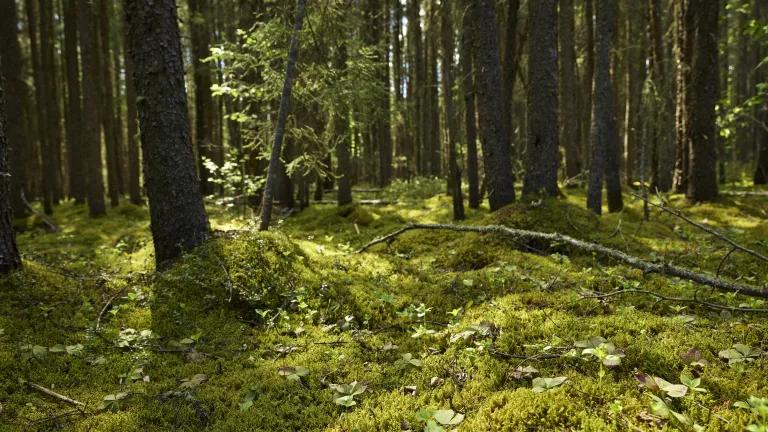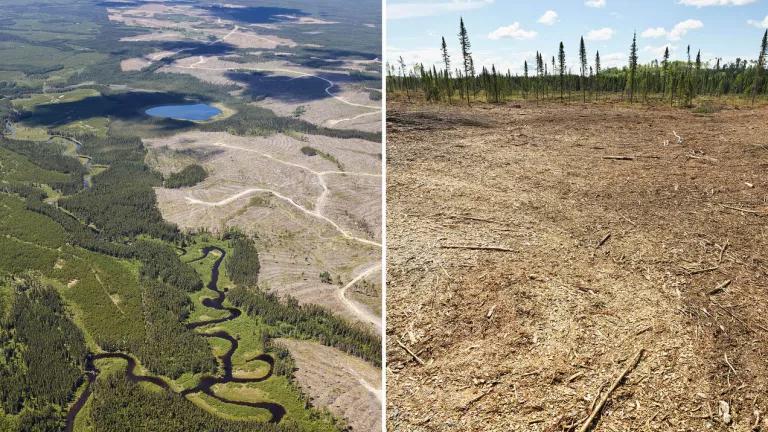
It's hard to overstate the Trump Administration's hostility to science. After all, it’s more difficult to justify opening up vast swaths of public land to oil and gas drilling, or to sacrifice endangered species to allow your wealthy supporters to drain the next river or bulldoze the next hill, when you have to pay attention to science. So what does a Trump Administration official do when the law says to base decisions on the best available science but the President has told you to "open up the water" and increase pumping from the overtapped San Francisco Bay-Delta estuary?
If you’re the Trump Administration official charged with protecting endangered salmon and other native fish in the Bay-Delta, you put your blinders on and dismiss the input of the most knowledgeable scientists. We saw this happen in July when National Marine Fisheries Service scientists were summarily removed from working on Endangered Species Act permits (biological opinions) when they determined that salmon and other fish would be jeopardized by water project operations. The Administration's head-in-the-sand approach was again vividly illustrated in a remarkable exchange last week when the California-Nevada chapter of the American Fisheries Society provided their input on the new Trump Administration Biological Opinions (Endangered Species Act permits) for the Bay-Delta. The American Fisheries Society, formed in 1870, is the largest society of fisheries experts in the country. The California-Nevada (Cal-Neva) Chapter includes over 400 fisheries and aquatic science professionals from federal, state, and tribal agencies, colleges and universities, and private employers, who are “actively engaged in fisheries and conservation activities throughout California and Nevada to advance our profession and the cause of fisheries conservation and management.”
When it comes to the Trump Delta Biological Opinions, the AFS folks are not impressed. Here’s a few tidbits of what they have to say about the USFWS Biological Opinion for threatened Delta Smelt:
- “As issued on October 21, 2019, the 2019 USFWS Biological Opinion severely truncates or eliminates existing protections under the 2008 USFWS Biological Opinion for federally listed endangered Delta Smelt”;
- “Increased exports during April and May will likely result in higher entrainment of larval Delta Smelt without the San Joaquin Inflow:Export ratio trigger.”
- “In lieu of the existing Fall X2 requirement of the 2008 USFWS Biological Opinion, the 2019 USFWS Biological Opinion includes a Summer/Fall Delta Smelt Habitat action that reduces the Fall X2 requirement and includes unassessed measures…. Moving the X2 location approximately 6 km upstream severely truncates critical habitat for rearing Delta Smelt in wet water years.”
And here is a sampling of what the Cal-Neva chapter of the AFS has to say about the NMFS Biological Opinion for several salmon runs, steelhead, sturgeon, and orcas:
- “The 2019 NMFS Biological Opinion does not include Shasta Dam carryover storage for cold water pool management nor does it require NMFS approval for implementing annual temperature management plans for Shasta Dam used to maintain cold water pool releases for juvenile Chinook Salmon egg incubation. These changes to Shasta operations pose a threat to winter-run Chinook Salmon during summer months when water temperatures can exceed thermal tolerances for egg incubation.”
- “The 2009 NMFS Biological Opinion allowed for OMR flow management beginning January 1 as a hard date to provide protections for juvenile salmonids. Under the 2019 NMFS Biological Opinion, OMR flow management only initiates after January 1 if 5% of wild young-of-year winter-run Chinook Salmon, spring-run Chinook Salmon, or steelhead are present in the Delta…. As species decline in abundance, monitoring may not be able to detect species in an area they are present; requiring presence to initiate a trigger may prevent the implementation of any protective action when needed the most. Additionally, zero detection does not equate to the absence of fish and it is inappropriate to assume absence from monitoring efforts that are unable to account for gear selectivity or estimates of uncertainty.”
- “[T]he 2019 NMFS Biological Opinion increases the uncertainty of recovery of listed species by further exacerbating conditions in the Sacramento and San Joaquin river basins and Delta.”
Sounds bad, right? These experts confirm that the new Trump Administration BiOps will make conditions worse almost across the board for native species that are already so imperiled, we can barely find them anymore in the Delta. For the person in charge of protecting and recovering these species, these comments should trigger loud alarm bells and a wholesale reconsideration of these BiOps. But not in the science-free zone of the Trump Administration. Instead, the Regional Director of the U.S. Fish & Wildlife Service, charged with overseeing the development of these two biological opinions, provided a flip and dismissive response to the input of these experts, saying: “I have never met you and don’t know what instigated your email. If at some point you’d like to engage in a serious conversation about fisheries conservation and the health of California’s environment, please let me know.”
Engaging in a serious conversation is just what about every legitimate scientist has been trying to do for the last four years of the Trump Administration, to no avail. Fortunately, the requirement that the Trump Administration use the "best available science" still means something in a court of law. NRDC and our allies have taken the Trump Administration to court over these sham BiOps and we’re confident that the scientists will find a receptive ear there.



